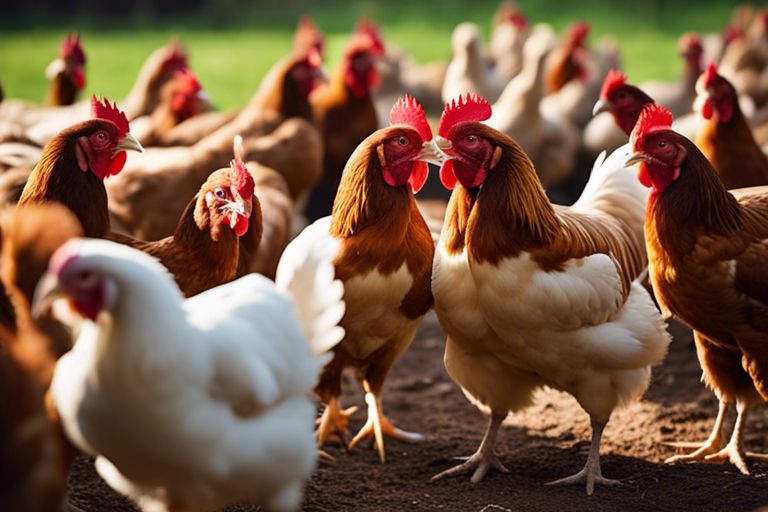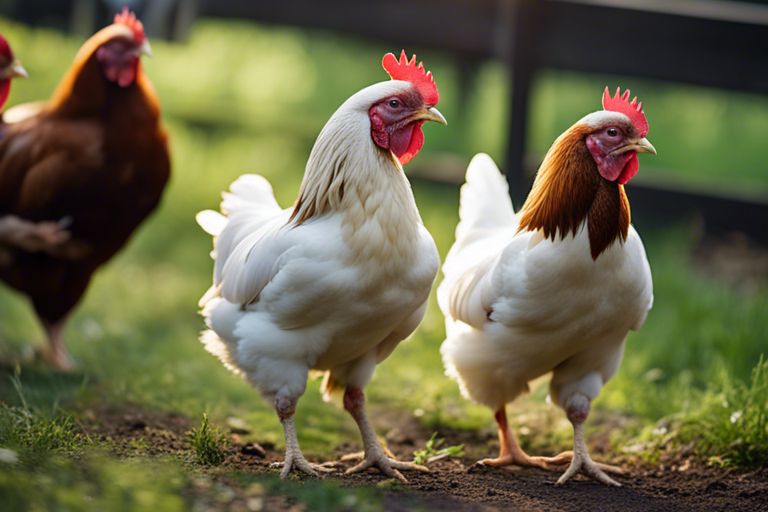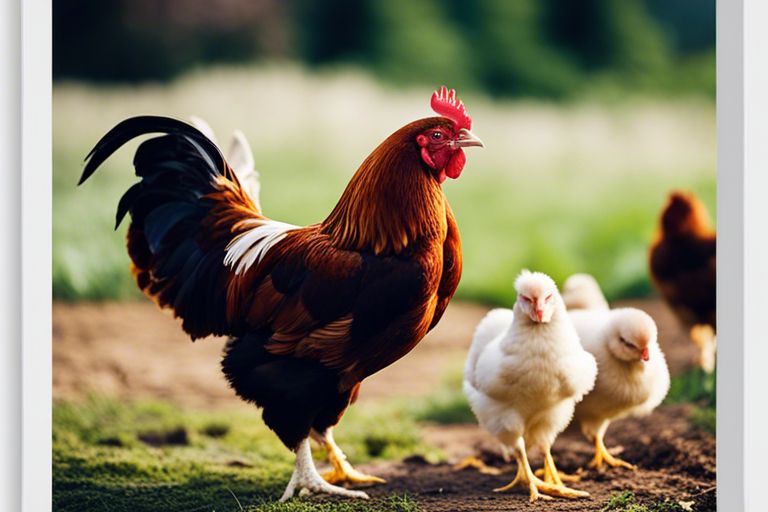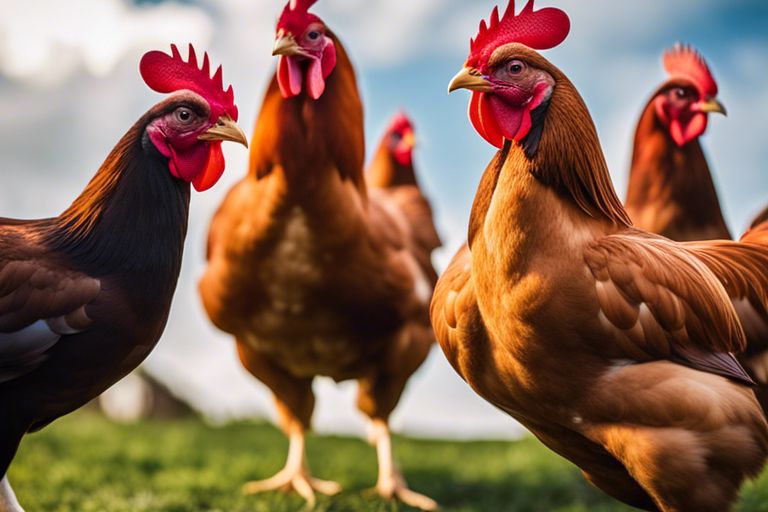It is crucial for poultry enthusiasts to prioritize the health and well-being of their flock by carefully breeding and selecting the healthiest chicken breeds. With numerous breeds available, each possessing unique traits and characteristics, making informed decisions is key to ensuring a thriving and resilient flock. By understanding the specific needs and strengths of different chicken breeds, breeders can promote vitality, disease resistance, and overall robustness in their poultry. In this blog post, we will explore the importance of breeding for health, share tips on selecting the best chicken breeds for optimal well-being, and provide valuable insights on creating a robust and sustainable flock.
Understanding Chicken Genetics
Basic Principles of Genetics in Chickens
With a basic understanding of genetics, chicken breeders can predict the traits that offspring may inherit from their parents. Genes are inherited from both the hen and the rooster, influencing characteristics such as plumage color, comb type, and egg-laying abilities. By selectively breeding chickens with desirable traits, breeders can work towards developing healthier and more resilient flocks.
Identifying Desirable Traits for Health
Chicken breeders must carefully identify and select for desirable traits that contribute to overall health and vitality in the flock. This includes traits such as disease resistance, strong immune systems, and efficient egg production. By prioritizing these characteristics in breeding programs, breeders can improve the overall well-being and longevity of their chickens.
Principles of genetics play a crucial role in determining the health and resilience of chicken breeds. By understanding how traits are inherited and passed down through generations, breeders can make informed decisions when selecting birds for breeding. By focusing on desirable traits that promote health and well-being, breeders can contribute to the long-term sustainability and success of their flocks.

Breeding Strategies and Techniques
Selective Breeding Methods
Even before the science of genetics was fully understood, farmers have practiced selective breeding to improve the qualities of their livestock. Selective breeding is the process of choosing the best individuals from a population to breed together in order to pass on desirable traits to the next generation. This method aims to enhance specific characteristics like disease resistance, egg production, or growth rate, leading to the development of healthier and more productive chicken breeds.
Crossbreeding and Hybrid Vigor
Even though selective breeding can result in improved traits, it may also lead to certain negative consequences like inbreeding depression. To counteract this, poultry breeders often turn to crossbreeding, which involves mating individuals from different breeds to create hybrids. The advantage of crossbreeding is hybrid vigor, where the offspring display enhanced traits such as better growth, increased egg production, and improved disease resistance.
This technique is particularly useful when creating a new breed that possesses the best qualities of different parental breeds. However, it’s important to note that not all hybrids will exhibit the desired traits, so careful selection and breeding practices are crucial in maximizing the benefits of crossbreeding.

Health Considerations in Breeding
Disease Resistance in Chickens
For chickens, disease resistance is a crucial trait to consider when breeding for a healthy flock. Selecting chicken breeds with natural resistance to common poultry diseases can help reduce the risk of widespread infections within your flock. Breeding for disease resistance involves careful observation and selection of birds that have shown resilience to prevalent illnesses in your area.
Addressing Common Health Issues Through Breeding
Considerations for addressing common health issues through breeding extend beyond disease resistance. It is important to focus on traits that promote overall well-being, such as strong immune systems and healthy growth patterns. By selectively breeding for these characteristics, you can improve the overall health and longevity of your chicken flock.
Resistance to common health issues such as respiratory infections, parasitic infestations, and reproductive disorders can be enhanced through strategic breeding practices. By prioritizing birds with a history of resistance to these ailments, you can gradually strengthen the genetic resilience of your flock. Regular health monitoring and collaboration with poultry veterinarians can further support your efforts in breeding the healthiest chicken breeds for your flock.

Managing and Sustaining a Healthy Flock
Nutrition and Environment for Optimal Health
On top of genetics, the nutrition and environment provided for your chickens play a vital role in maintaining optimal health within your flock. Ensure your chickens have access to a balanced diet rich in necessary nutrients, clean water, and a suitable living space. Proper ventilation, sufficient space, and cleanliness in the coop are crucial to prevent diseases and stress among your birds.
Monitoring and Improving Flock Health Over Generations
Sustaining a healthy flock involves continuous monitoring and improvement over generations. Regular health checks, observing behavior, and promptly addressing any signs of illness are key to preventing and managing health issues within your flock. Selective breeding for disease resistance and overall vitality can also contribute to the long-term health and well-being of your chickens.
Optimal management practices and a proactive approach to monitoring and improving flock health can significantly impact the sustainability and success of your chicken breeding program. By implementing these strategies, you can work towards a stronger, healthier flock that will thrive for generations to come.
To wrap up
Now, you are well-equipped with the knowledge and understanding necessary to breed and select the healthiest chicken breeds for your flock. By considering factors such as breed characteristics, health history, and genetic diversity, you can ensure that your flock remains robust and thriving for years to come. Remember to prioritize the health and well-being of your chickens above all else, as this will ultimately lead to a successful and sustainable breeding program. With careful planning and attention to detail, you can cultivate a flock that not only meets your needs but also promotes the overall health and longevity of your chickens.
FAQ
Q: Why is it important to breed and select the healthiest chicken breeds for your flock?
A: Breeding and selecting the healthiest chicken breeds for your flock ensures the overall well-being and productivity of your chickens. Healthy chickens are more resistant to diseases and have better reproductive capabilities.
Q: How can I identify the healthiest chicken breeds for my flock?
A: Look for chicken breeds that are known for their hardiness, disease resistance, and good overall health. Consult with experienced breeders or poultry experts for recommendations.
Q: What traits should I look for when selecting healthy chicken breeds?
A: Look for chickens that have strong immune systems, good feather quality, alert and active behavior, and a well-proportioned body structure.
Q: How can I ensure that the chickens I breed are healthy?
A: Provide your chickens with a nutritious diet, clean water, a suitable living environment, and regular health check-ups by a veterinarian. Avoid inbreeding and select breeding pairs carefully.
Q: What impact does breeding healthy chicken breeds have on the overall flock productivity?
A: Breeding healthy chicken breeds can lead to increased egg production, higher growth rates, and lower mortality rates in your flock. Healthy chickens are more efficient in converting feed into meat or eggs.
Q: How can I maintain the health of my chicken flock over generations?
A: Practice good biosecurity measures, rotate pastures regularly, quarantine new birds before introducing them to the flock, and monitor the health status of your chickens closely. Continuously select for health traits in each generation.
Q: Are there specific breeding techniques that can help in selecting the healthiest chicken breeds?
A: Utilize techniques such as pedigree analysis, performance testing, and genetic diversity management to select for desirable health traits in your chicken breeds. Regularly cull underperforming or unhealthy birds from your breeding program.











